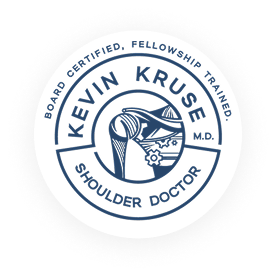What is the Right Age For Shoulder Replacement?
Nearly 53,000 shoulder replacements are performed in the U.S. every year. In shoulder replacement surgery, the damaged articulating parts of the shoulder joint are removed and replaced with artificial prostheses. Replacement of both the humeral head and the socket is called a total shoulder replacement.
Many patients wonder when they should have shoulder replacement. Is it better to have surgery when you are younger and may recover faster? Or should you postpone surgery as long as possible and wait until you are older? According to a Henry Ford Hospital study, age is not a discernible factor in the success of shoulder replacement. Instead of considering their age, patients should consider their condition.
When deciding if shoulder replacement is right for you, ask these questions:
- Am I experiencing consistent pain?
- Is the pain affecting my quality of life?
- Is the pain interfering with my daily activities?
- Is the pain waking me up or keeping me awake at night?
- Am I experiencing intense pain even while resting?
- Have non-surgical treatments been ineffective at relieving the pain?
If you answered yes to those questions, shoulder replacement may be the best option for you.
The goal of orthopedic care is to relieve pain and restore function. Regardless of your age, if having shoulder replacement surgery would improve your quality of life, then it is a viable option. No matter how many candles will be on your birthday cake this year, there is still life to live. Talk to your doctor and find out if shoulder replacement is right for you. Get back to living and leave pain in the past.
Dr. Kevin Kruse is a board-certified, fellowship-trained, orthopedic shoulder surgeon in Dallas, Texas. Dr. Kruse is committed to bringing the highest level of personalized orthopedic care, using advanced technology and biologics to treat shoulder injuries with optimal patient outcomes effectively.

